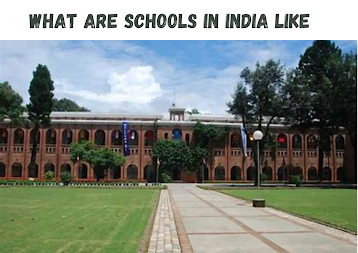What are schools in India like
Schools have been an important part of the culture for almost as long as people have existed. In many ancient civilizations, schools were very formal. Schools were considered a place to learn how to become a better citizen, prepare for military life, pursue the priesthood and so much more.
Schools in India are a crucial part of Indian society and education. The schools are not only responsible for the teaching and nurturing of intellectual, emotional, and physical growth of students, but also play an important role in their moral development. India's education system is based on the "10+2+3 plan" which requires 10 years of schooling, 2 years of junior college, and 3 years of degree in a university. Both the central government and the state government play a significant role in the overall infrastructure of these institutions. Private schools are run by individuals, organizations, or trusts and are mostly privately funded. Government schools are mostly run by the state (government) itself.
The educational system in India is a bit different compared to that in other countries and concentrates more on theory but schools in India also offer you various boards like CBSE, ICSE, and IB so you can choose what is more favorable for you. There are five types of schools: government-run schools, government-aided schools, private schools, international schools, and residential/boarding schools. Government-run schools receive their funding from the government but their management is not overseen by them.
Private schools receive their funding from the parents of their students or corporations, and international schools receive funding from a mixture of sources. Private schools are preferred over public schools due to the extremely poor conditions of public schools.
In India, emphasis is placed on academics and chances are that if you are a science student you'll be considered more important. Top schools in India also provide various concessions to Indian nationals on different bases. These can be in the form of financial help or quotas which refers to the reservation of seats for underprivileged groups and that's why Indian schools will give you a new perspective. The schools of the country offer multiculturalism, diversity, and learning opportunities that one might not find anywhere else. Studying in India will help you learn more about the culture, people, and history as you will get to meet students who come from different cultures all in one classroom.
After completing 12th or its equivalent, a good option for a student is to choose a college to pursue graduation. Studying in India you can also choose to get into one of the most prestigious colleges in the world like IIT, IIM, and many more. There are many job prospects across a variety of industries in India and you have the opportunity to study at any age and pace. A degree from one of the institutes in India is at par with any degree from any institute, nationally as well as globally. Colleges in India also require much less money as compared to countries like the US or Australia.




Comments
Post a Comment